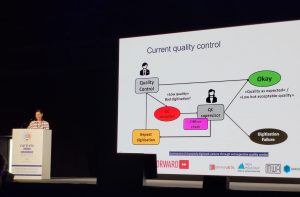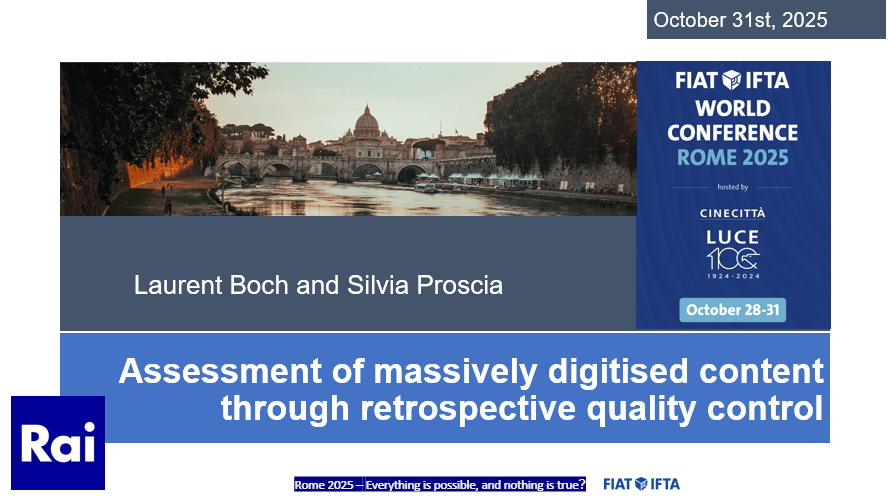The results of the study “Assessment of massively digitised content through Retrospective Quality Control” were presented at the FIAT/IFTA 2025 Conference.
Rome, Cinecittà, 31 October 2025
On the final day of the 49th FIAT/IFTA Annual Conference, the project “Assessment of massively digitised content through retrospective quality control” was presented by Laurent Boch and Silvia Proscia from CRITS.
Both are members of FIAT/IFTA commissions: Laurent Boch is a member of the Executive Council and the Preservation and Migration Commission, while Silvia Proscia is a member of the Media Studies Commission.
The work, carried out in collaboration with Roberto Borgotallo from CRITS and Giuliano Donnini, Danilo Praticò and Maurizio Intaglietta from Teche, aimed to gain statistical insight into the results of RAI’s large-scale digitisation of Betacam and IMX tapes completed so far. This knowledge is essential for attributing value to the digitised content, justifying the potential disposal of the original tape supports, and assessing how to continue the ongoing digitisation process.
In the large-scale digitisation of tapes, Quality Control (QC) was established from the outset to ensure the best possible outcome, while having to make necessary compromises to keep pace with the high production rate (e.g. partial timeline checks).
Since the original tapes were preserved to allow possible re-digitisation should any issues later emerge in the digitised content, QC could tolerate a certain margin of error, as recovery was still possible. Over time, however, it became evident that re-accessing the original media is particularly costly, and that playback machines will not remain available for much longer—probably not beyond the duration of the digitisation process itself.
All this led to the launch of a retrospective quality control activity, based on a representative sampling, in order to assess—through a different QC methodology—whether any substandard quality levels had gone undetected.
The initial QC acceptance decisions proved to be correct for 98.7% of the sample, clearly demonstrating the soundness and reliability of the current process, which will be further enhanced on the basis of the insights gained through this study.

Silvia Proscia during the presentation of the study at the conference on 31 October.
